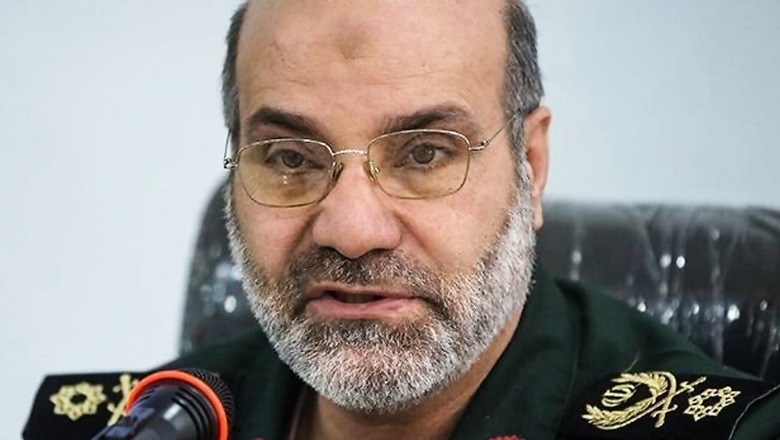
views
The Israeli strike on the Iranian consulate building in the Syrian capital of Damascus led to the deaths of seven officers of the Iranian Revolutionary Guards Corps (IRGC). Among them, the high profile deaths were of Brig-Gen Mohammad Reza Zahedi, a senior commander of the elite Quds Force, and Brig-Gen Mohammad Hadi Haji-Rahimi, his deputy.
The former, Brig-Gen Mohammad Reza Zahedi, the elite Quds force’s senior commander, was a close friend of Qassem Soleimani, the Quds commander-in-chief and was appointed as a liaison to Hezbollah.
This is the first photo of General Haji Rahimi, a deputy of Quds Force general Zahedi, both of whom were killed in the Israeli airstrike in Damascus on Monday.In the photo, Haji Rahimi (right) is pictured with Hassan Irlou, a senior IRGC operator who spent years on secret… https://t.co/LLgWW0AC7c pic.twitter.com/eNEZ4aQkSO— Iran International English (@IranIntl_En) April 1, 2024
It was in 1998 that Qaseem Soleimani appointed him as the head of the Quds Force’s Lebanon Corps. After assuming his new role, Zahedi provided technical and military training to Hezbollah militants.
The Quds force is a part of the IRGC and the IRGC was set up following the Islamic Revolution of Iran to help the new Islamic authorities consolidate their power. The Quds forces are a specialised unit within the IRGC responsible for carrying out unconventional warfare and extraterritorial operations, particularly in supporting proxy groups and conducting intelligence activities abroad.
Zahedi was one such IRGC commander who headed these proxy groups, mostly in Lebanon and Syria, and his death in the Israeli strike marks the first time a senior member of the Iranian government has been killed in Syrian soil, according to a report by L’Orient Today. Iranian news outlets said Zahedi was the chief Quds Force official in the Syria and Lebanon in between the late 2000s to the late 2010s.
He was also closely associated with the Syrian government and was close to Bashar-al-Assad, the Syrian President, whom he helped quell the protests by dissidents.
He was among the first IRGC commanders to be sent to Syria to suppress the anti-Assad uprising there.
Born in Isfahan in 60s, Zahedi joined the IRGC one year after the Islamic Revolution. He led IRGC’s Air Force from 2005 to 2006 and the Ground Force from 2006 to 2008.
He also fought in the Iran-Iraq war and gained military expertise which helped his ascent to the roles mentioned above.
His contribution was such that Hezbollah in their statement, which condemned his death and warned Israel, highlighted that “liquidating the leaders cannot stop the roaring tide of the people’s resistance”, underlining in a way how instrumental he was for the outfit that has ramped up its attacks on Israel.
He served for around 44 years at the IRGC. During his time at the IRGC, he was put on the US secondary sanctions list and targeted by UN sanctions. He was sanctioned by Australia, Canada and the United Kingdom.
(with inputs from Mehr News and Arash Azizi’s The Shadow Commander)


















Comments
0 comment